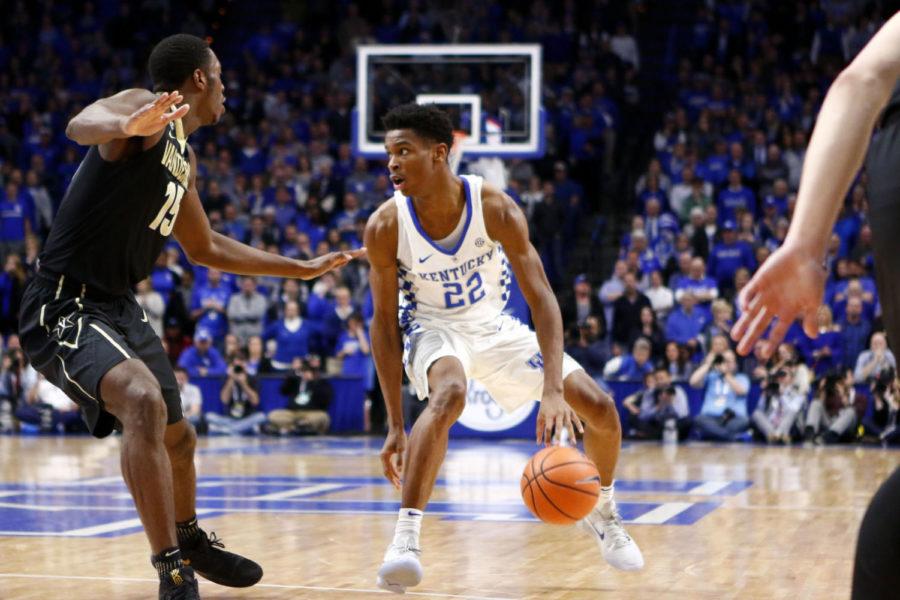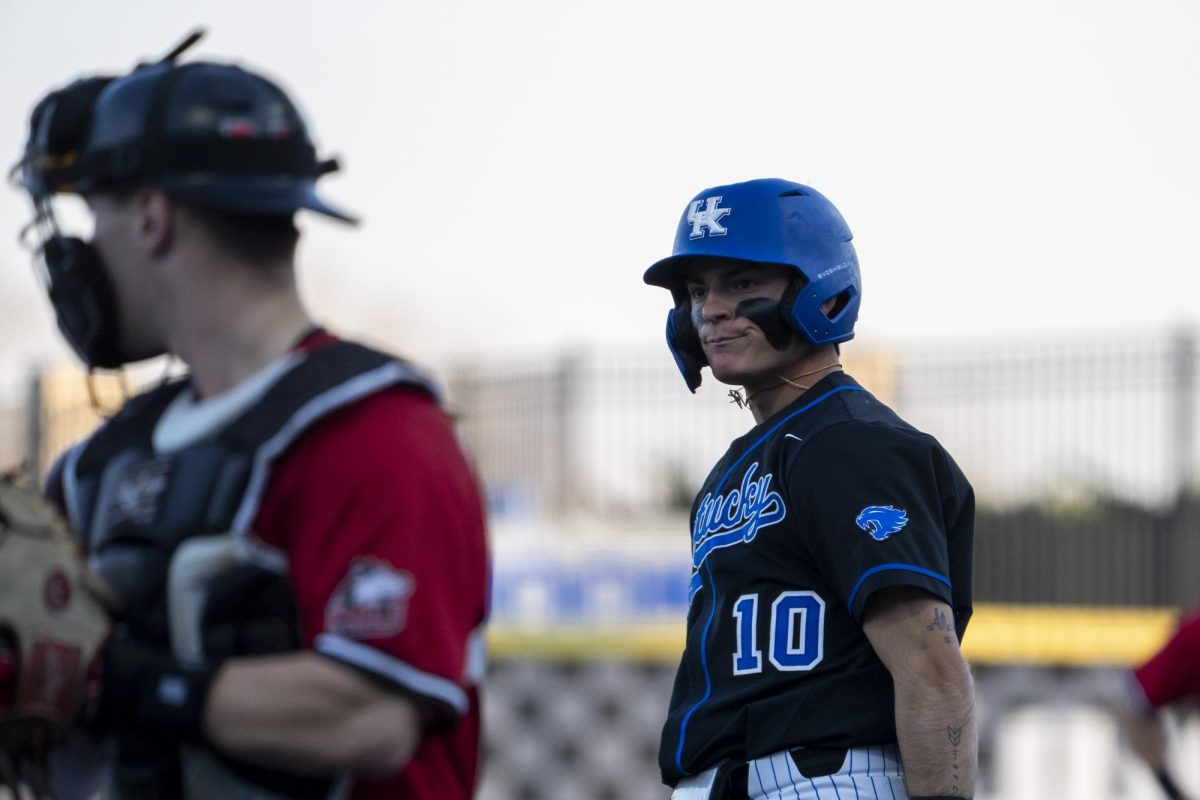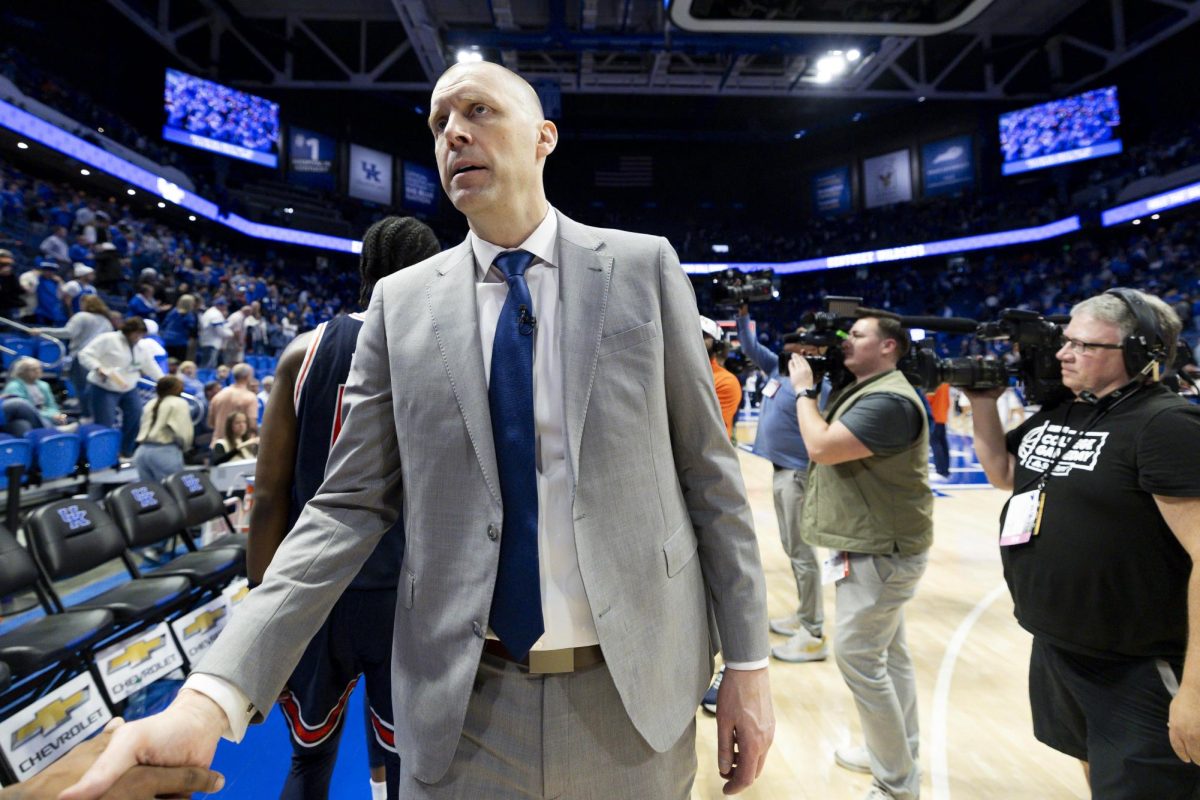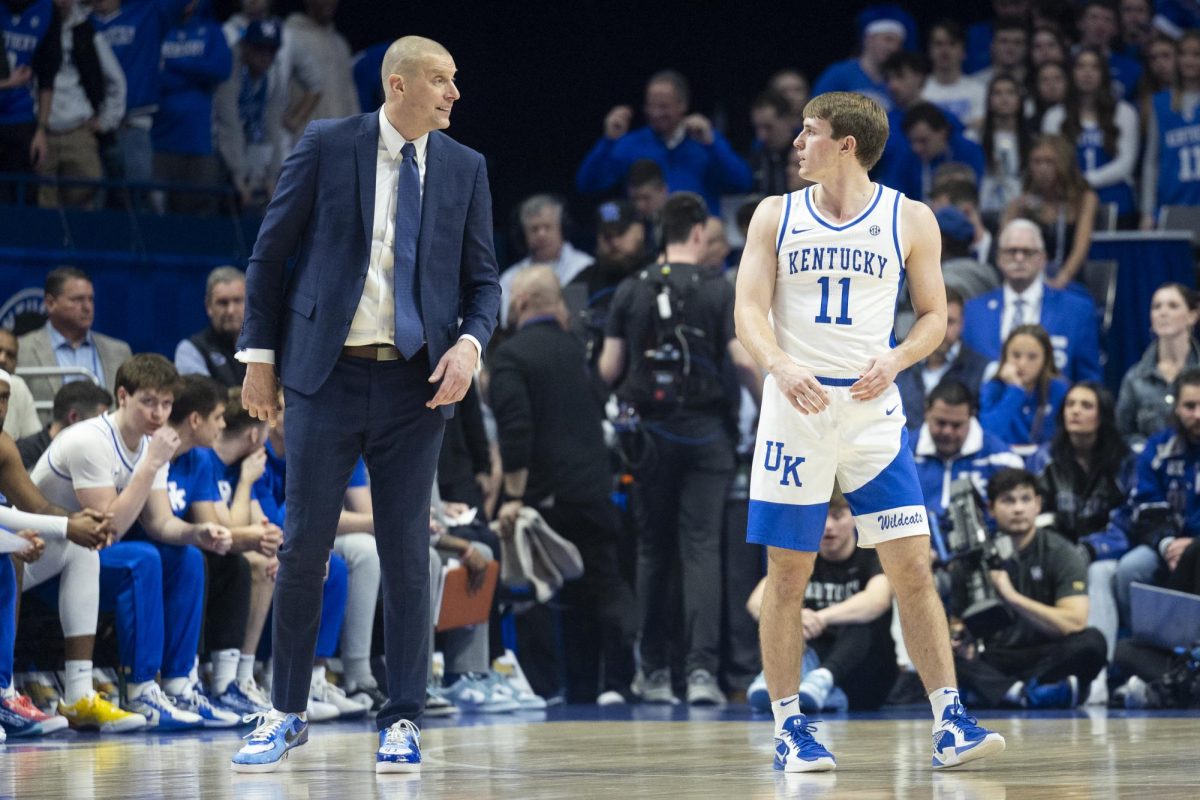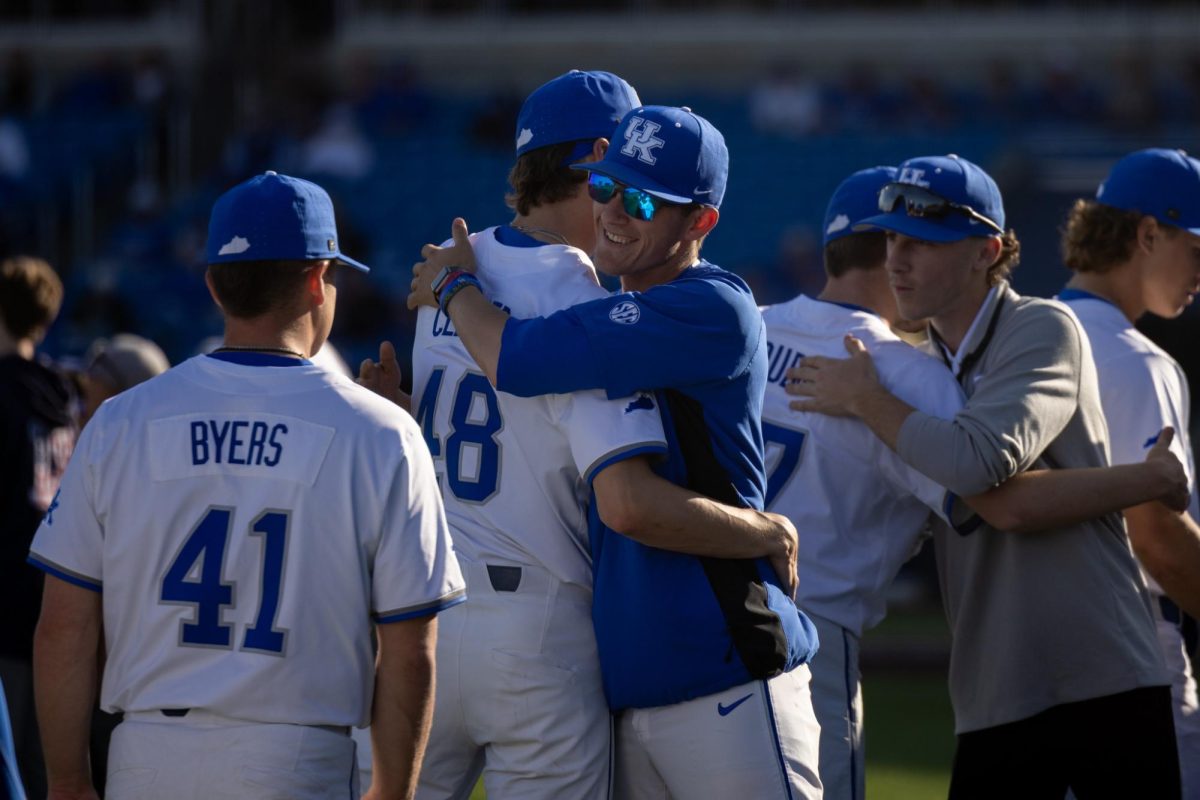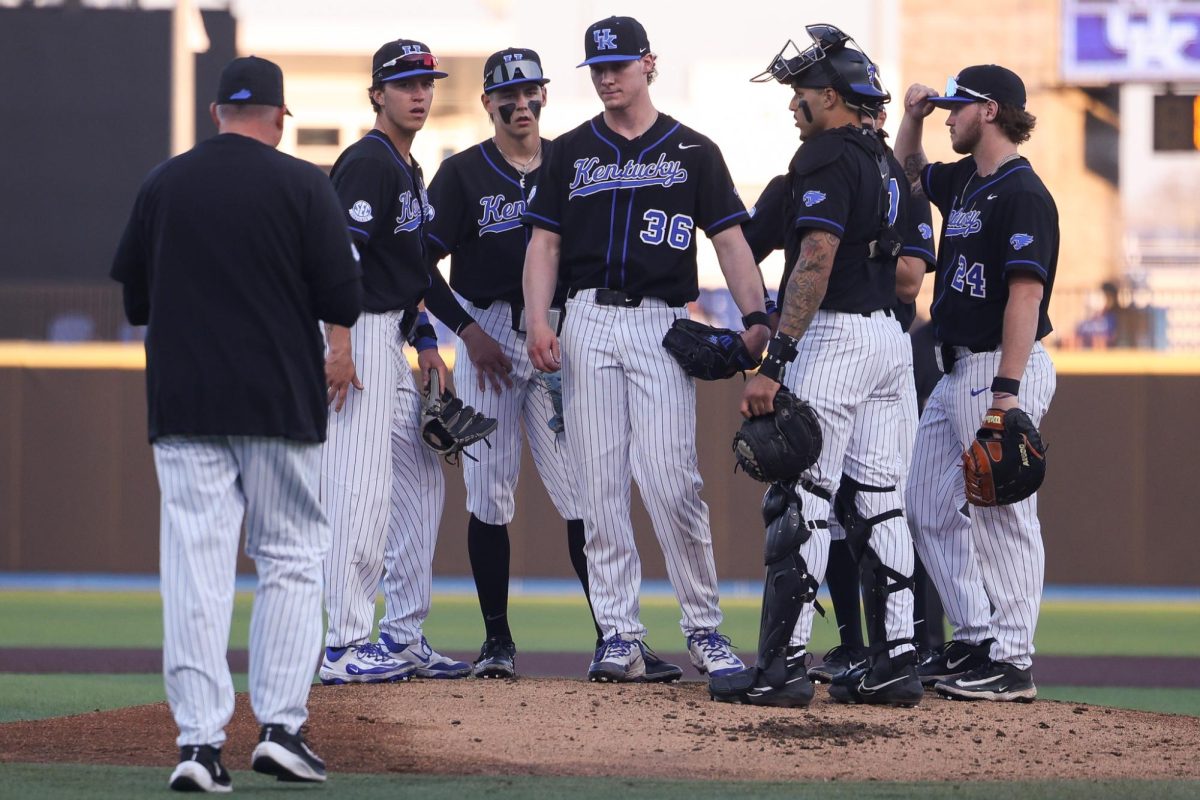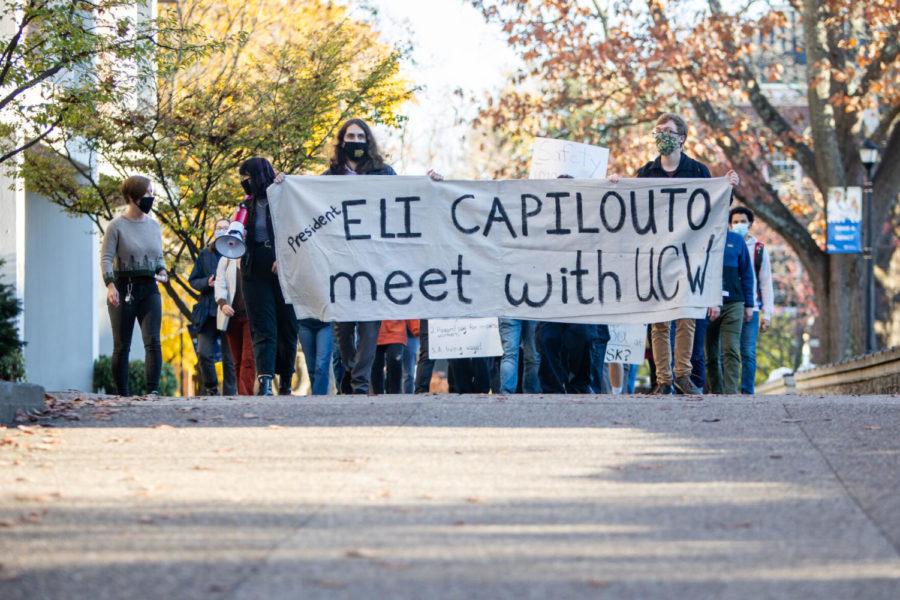UCW continues calls for change with march through campus
November 12, 2020
United Campus Workers, a coalition of UK employees, marched across campus in the afternoon of Nov. 12 as part of their campaign to demand a meeting with UK President Eli Capilouto.
“No justice, no peace. No healthcare, no peace. No safety, no peace,” they chanted as they marched around campus to Capilouto’s office in the Main Building.
UCW has previously gathered at the student center and done backpack displays on campus as part of their repeated efforts to meet with the administration.
UCW members say they will not allow themselves to be ignored, and will not let a few cancelled meetings damper their spirits because the message they are speaking hits too close to home.
Marion Rust, a professor of English at UK for over 12 years, spoke to the crowd of just over 30 about why she chose to join UCW. She discussed how she became fed up with the conditions her grad students were under with poor healthcare and wages.
“They do a great deal of the work yet receive a type of insurance that means if someone goes into childbirth, they can end up $8,000 in debt,” said Rust.
UCW has tried to arrange a meeting with UK administrators, specifically Capilouto, to discuss the changes and solutions they believe will benefit UK workers. Although meetings have been arranged, they have resulted in last minute cancellations.
“We had a meeting scheduled that day and they were cancelled,” said Rust. “We were not going with the program in terms of saying ‘You’re right, there is no problem we are fine.'”
UCW was formed in late 2019 with the mission to create a safe and stable working environment for UK faculty and campus workers. One of their greatest calls is that UK staff receives hazard pay for exposing themselves to the unknown as they continue to do their jobs.
Speaker Matt Sheil, a staff member at UK’s Library of Law, chatted to the crowd through a megaphone.
“We will get it whether Capilouto meets with us or not.”
Heil was quoted in a press release sent out by UCW regarding the day’s march.
“I’ve been working for months in-person, putting myself at risk unnecessarily. It’s beyond time for the University to make it a universal policy that staff be allowed to go remote if our work allows it,” Heil said.
Scott Zurkuhlen, grounds worker at UK, has had experiences in unions before, seeing the change they can bring.
“Workers ultimately need to have some sort of independent voice to speak collectively on issues that matter to them,” Zurkuhlen said.
UCW’s website outlines how, in their opinion, UK’s top earners should take pay cuts to support the lower income workers.
“We believe that UK should not be using this crisis as an excuse to go after low-paid workers but should instead take cuts themselves and offer all campus workers job security, a living wage, affordable and comprehensive health insurance, and a safe work environment free of racism where all workers are respected,” the website reads.
UK spokesperson Jay Blanton said the university has been clear that those who can work remotely should do so, and that UK does more testing and tracing than any institution in the state.
“The university has invested more than $30 million thus far in the health, safety and wellness of our entire community. Our community – its health, its safety, its well-being – has always come first. Finances have always come second,” Blanton said.
“I want to be proud on my university again, and for me to be proud of my university I need to understand that every worker has a voice in self governess and that we treat every work fairly,” Rust said.
UCW has asked for in-person staff to have a $2 hazard pay and access to free COVID testing. They also have pushed for all COVID related health expenses to be covered by the University. More details to this plan and other issues are outlined on the UCW website.
Rachel Davis, a fourth year PhD student in sociology who works as an undergraduate instructor, believes the $2 hazard pay is beneficial but hopes for an increase in wages after COVID-19 times.
“I believe workers deserve a living wage. We are doing too much work for too little pay, and we also deserve comprehensive healthcare,” Davis said.
Blanton said the university has made strides in worker compensation in the five years, including raising the minimum wage twice.
“We are driving wages in this community in a positive way for workers. UK this past year was named a Great College to Work for – a national designation. We were ranked in 8 categories, placing us on their honor roll,” Blanton said. “In fact, we were recognized – because of favorable responses from our employees – in areas such as compensation and benefits, facilities, workplace and security, respect and appreciation.”
The march ended at Capilouto’s office where an administrator collected a UCW petition with over 1,000 signatures to give to Capilouto.
A union member, who prefers to remain anonymous, told the Kernel she saw UK administration members observing the march.
The ‘Help us Keep all Wildcats safe!” petition lists seven demands:
-Offer free, continuous COVID-19 testing to all students, faculty and workers.
-Be completely transparent with the campus community (including parents, students and workers) around infections, COVID-19-related deaths, and contact tracing at UK.
-Offer all staff and faculty whose work allows it the choice to be remote to lower the density of staff on campus and the likelihood of an outbreak.
-Cover all healthcare costs associated with COVID-19 for campus workers.
-Offer all campus workers affordable, comprehensive healthcare during and beyond the pandemic.
-Offer Hazard Pay to in-person workers.
-Meet with United Campus Workers of Kentucky to discuss implementing these changes.




































